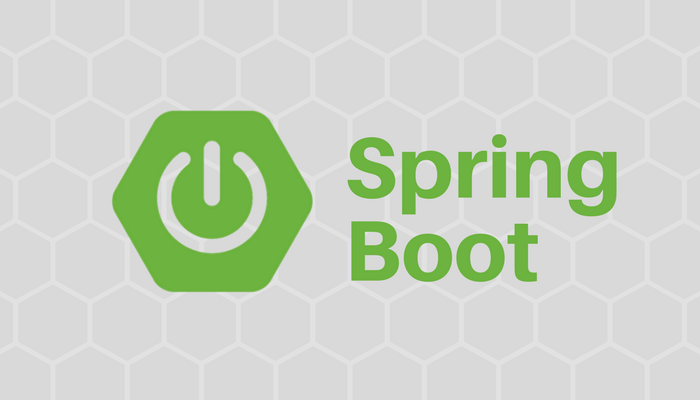Flutter 錯誤捕獲的正確姿勢
- 2019 年 10 月 14 日
- 筆記
背景
我們知道,在軟件開發過程中,錯誤和異常總是在所難免。
不管是客戶端的邏輯錯誤導致的,還是服務器的數據問題導致的,只要出現了異常,我們都需要一個機制來通知我們去處理。
在 APP 的開發過程中,我們通過一些第三方的平台,比如 Fabric、Bugly 等可以實現異常的日誌上報。
Flutter 也有一些第三方的平台,比如 Sentry 可以實現異常的日誌上報。
但是為了更加通用一些,本篇不具體講解配合某個第三方平台的異常日誌捕獲,我們會告知大家如何在 Flutter 裏面捕獲異常。
至於具體的上報途徑,不管是上報到自家的後台服務器,還是通過第三方的 SDK API 接口進行異常上報,都是可以的。
Demo 初始狀態
首先我們新建 Flutter 項目,修改 main.dart 代碼如下:
import 'package:flutter/material.dart'; void main() => runApp(MyApp()); class MyApp extends StatelessWidget { // This widget is the root of your application. @override Widget build(BuildContext context) { return MaterialApp( home: Scaffold( appBar: AppBar(title: Text('Flutter Crash Capture'),), body: MyHomePage(), ), ); } } class MyHomePage extends StatelessWidget { @override Widget build(BuildContext context) { return Container(); } }效果如下:
捕獲錯誤
我們修改 MyHomePage,添加一個 List 然後進行越界訪問,改動部分代碼如下:
class MyHomePage extends StatelessWidget { @override Widget build(BuildContext context) { List<String> numList = ['1', '2']; print(numList[6]); return Container(); } }可以看到控制台報錯如下:
flutter: ══╡ EXCEPTION CAUGHT BY WIDGETS LIBRARY ╞═══════════════════════════════════════════════════════════ flutter: The following RangeError was thrown building MyHomePage(dirty): flutter: RangeError (index): Invalid value: Not in range 0..1, inclusive: 6當然這些錯誤信息在界面上也有顯示(debug 模式)。
那麼我們如何捕獲呢?
其實很簡單,有個通用模板,模板為:
import 'dart:async'; import 'package:flutter/material.dart'; Future<Null> main() async { FlutterError.onError = (FlutterErrorDetails details) async { Zone.current.handleUncaughtError(details.exception, details.stack); }; runZoned<Future<void>>(() async { runApp(MyApp()); }, onError: (error, stackTrace) async { await _reportError(error, stackTrace); }); } Future<Null> _reportError(dynamic error, dynamic stackTrace) async { // TODO }在 TODO 裏面就可以執行埋點上報操作或者其他處理了。
完整例子如下:
import 'dart:async'; import 'package:flutter/material.dart'; Future<Null> main() async { FlutterError.onError = (FlutterErrorDetails details) async { Zone.current.handleUncaughtError(details.exception, details.stack); }; runZoned<Future<void>>(() async { runApp(MyApp()); }, onError: (error, stackTrace) async { await _reportError(error, stackTrace); }); } Future<Null> _reportError(dynamic error, dynamic stackTrace) async { print('catch error='+error); } class MyApp extends StatelessWidget { // This widget is the root of your application. @override Widget build(BuildContext context) { return MaterialApp( home: Scaffold( appBar: AppBar(title: Text('Flutter Crash Capture'),), body: MyHomePage(), ), ); } } class MyHomePage extends StatelessWidget { @override Widget build(BuildContext context) { List<String> numList = ['1', '2']; print(numList[6]); return Container(); } }運行可以看到控制台捕獲到錯誤如下:
flutter: catch error=RangeError (index): Invalid value: Not in range 0..1, inclusive: 6assert 妙用
我們知道,一般錯誤上報都是在打包發佈到市場後才需要。
平時調試的時候如果遇到錯誤,我們是會定位問題並修復的。
因此在 debug 模式下,我們不希望上報錯誤,而是希望直接打印到控制台。
那麼,這個時候就需要一種方式來區分現在是 debug 模式還是 release 模式,怎麼區分呢?
這個時候就需要用到 assert 了。
bool get isInDebugMode { // Assume you're in production mode. bool inDebugMode = false; // Assert expressions are only evaluated during development. They are ignored // in production. Therefore, this code only sets `inDebugMode` to true // in a development environment. assert(inDebugMode = true); return inDebugMode; }從注釋也可以知道,assert 表達式只在開發環境下會起作用,在生產環境下會被忽略。
因此利用這一個,我們就可以實現我們的需求。
上面的結論要驗證也很簡單,我們就不演示了。
完整模板
import 'dart:async'; import 'package:flutter/material.dart'; Future<Null> main() async { FlutterError.onError = (FlutterErrorDetails details) async { if (isInDebugMode) { FlutterError.dumpErrorToConsole(details); } else { Zone.current.handleUncaughtError(details.exception, details.stack); } }; runZoned<Future<void>>(() async { runApp(MyApp()); }, onError: (error, stackTrace) async { await _reportError(error, stackTrace); }); } Future<Null> _reportError(dynamic error, dynamic stackTrace) async { // TODO } bool get isInDebugMode { // Assume you're in production mode. bool inDebugMode = false; // Assert expressions are only evaluated during development. They are ignored // in production. Therefore, this code only sets `inDebugMode` to true // in a development environment. assert(inDebugMode = true); return inDebugMode; }debug 模式下,直接將錯誤打印到控制台,方便定位問題。
release 模式下,將錯誤信息收集起來,上傳到服務器。
參考鏈接:
Report errors to a service


